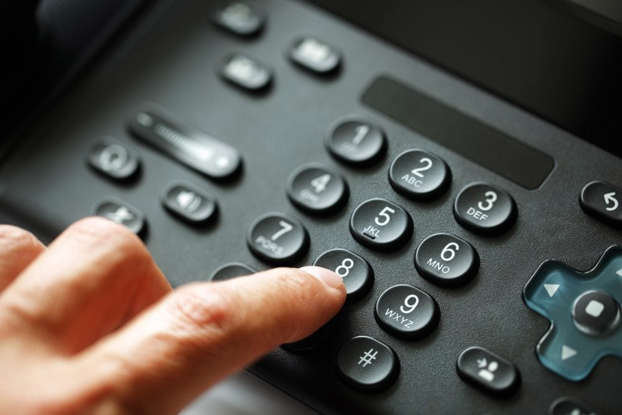How is it that telemarketing is even legal?
Telemarketing (soliciting business by means of a phone call) is legal, provided the telemarketer complies with the law, including the Federal Communications Commission’s (FCC) Consumer Protection Act. You might be surprised to learn that the Act prohibits:
- calls to your home before 8 a.m. and after 9 p.m.
- robocalling without your prior written consent
- robocalling without an opt-out mechanism
- all calls that don’t identify the caller, who they’re calling on behalf of, and contact info for such person.
- calls to anyone on the Do Not Call Registry (other than exempted calls). Watch out for these red flags that someone is tracking your cellphone.
Also Read– Why You Never Want to See These Four Letters on Your Boarding Pass

How did they even get your phone number?
Most telemarketers purchase phone numbers from third party data providers. Here’s how those providers may have gotten your number, according to the Better Business Bureau:
- You called an 800, 888, and/or 900 number (they use caller I.D. technology and collect phone numbers).
- You applied for credit.
- You contribute to charities. Here’s how you can spot fake donation scams.
- You’re a registered voter.
- You bought anything, or entered any contest, and gave your phone number in the process.
- Your phone number is on your checks.
- You call a business, and they have caller I.D. (which, you should assume they do).
Also Read– Leave the sweatpants at home. Why we need a dress code for flying.

Essentially anyone who has a phone number can get telemarketing calls
That’s because robocallers aren’t even humans, they’re machines programmed to dial random phone numbers—even unlisted phone numbers. Although robocalling is an illegal form of telemarketing, scofflaws will scoff laws (until they get caught, which, we’re happy to tell you does happen) and robocalling isn’t illegal by political candidates and charities. Next, learn tech hacks that allow you to stop spam calls for good.

Telephone scams
“Every year, thousands of people lose money to telephone scams—from a few dollars to their life savings,” reports the FTC’s Consumer Information page regarding phone scams. Scammers resort to whatever it takes to enlist your trust, from calling you by your name, to making small talk, to asking about your kids. They may claim to be a representative of a utility (such as the phone company or electric company), or they may claim to have information about a consumer product you use. If you get these texts, delete them immediately.
Also Read– Malaysia Airlines Eyes British Airways Business Seat For New Airbus A330neos

Yes, even you could be targeted
“Everyone’s a potential target,” the FTC advises. “Fraud isn’t limited to race, ethnic background, gender, age, education, or income.” That being said, some scams target certain groups, such as the elderly or millennials. Falling for these scams not only puts your finances at risk, but it also increases the likelihood you’ll keep getting harassed by telemarketers! In fact, please pay special attention to this list of phone scams we’ve been hearing about lately. And read on to learn how to put an end to telemarketing calls.

Start with registering for the Do Not Call List
Since the FTC opened the “Do Not Call List” 15 years ago, over 200 million phone numbers have been registered. Unfortunately, registering can only stop sales calls. The following calls are still allowed:
- political calls
- charitable calls
- debt collection calls
- informational calls
- telephone survey calls
Plus, if you’ve given a company written permission to call you (which you may have done inadvertently), being on the List doesn’t help (until you rescind that permission). In addition, as stated above, laws do get broken. Make sure you know these tricks con artists use to win your trust.
Also Read– Aegean & Cyprus Airways To Announce Codeshare Agreement

Watch for these signs a call is a telemarketer
The good news about telemarketing calls is that there are lots of ways to figure out they’re telemarketing calls even before picking up the phone. Here are some common warning signs:
- You don’t recognize the number.
- The phone number has the same first six digits as your ten-digit phone number.
- Your caller ID registers it as SPAM number.
- Your caller ID identifies it as a call from a city where you recently purchased a plane ticket or reserved a hotel room online.

If you decide to answer the phone
If you opt to take the call even when you don’t recognize the number, count silently to five before saying hello. If it’s someone you know, they’ll likely say, “hello?” If you recognize the voice, you can reply. Robocallers, on the other hand, will disconnect at the silence. If it’s a human telemarketer, there will often be a second or two of lag time before the person on the other end begins speaking. Our mailboxes are being assaulted with unwanted attention too.
Also Read– Wizz Air touts record traffic, sees return to profits ahead

Signs that the call you just answered is a telemarketer
Telemarketers tend not to be keen to announce themselves as such. But if you say “hello” and the person on the other end of the phone pronounces your name wrong or calls you by the wrong title (“Mr.” instead of “Ms.” for example), that’s a sign you’re talking to a telemarketer. Even worse is if the person on the other end asks for your personal information, then you should assume it’s not only a telemarketer but one who is not within the bounds of the law. Here’s how to tell if someone rejected your call.

Uh oh, it’s a telemarketer. Now what?
If despite your efforts, you find yourself on phone with a telemarketer, here’s what you can do to minimize the damage, including further harassment and getting embroiled in a telemarketing scam:
- Hang up.
- If you don’t feel comfortable hanging up without saying something, simply say, “Sorry,” and hang up. The point is to say as little as possible, and never say the word “yes.”
You want to get off the phone call as quickly as possible and without having given away any personal information. Find out more strategies to get rid of a telemarketer after you’ve answered the phone.
Also Read- 5 Credit Card Benefits Every Traveler Should Have

Here’s what else you must never do on a phone call with a stranger:
- Confirm the pronunciation or spelling of your name.
- Give out your address.
- Share a credit card number.
- Give any part of your social security number.
- Try to enlist the person on the other end of the phone to put you on any “Do Not Call List.” Next, learn more about the truth about the Do Not Call list.





































